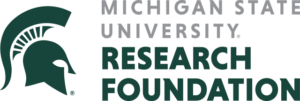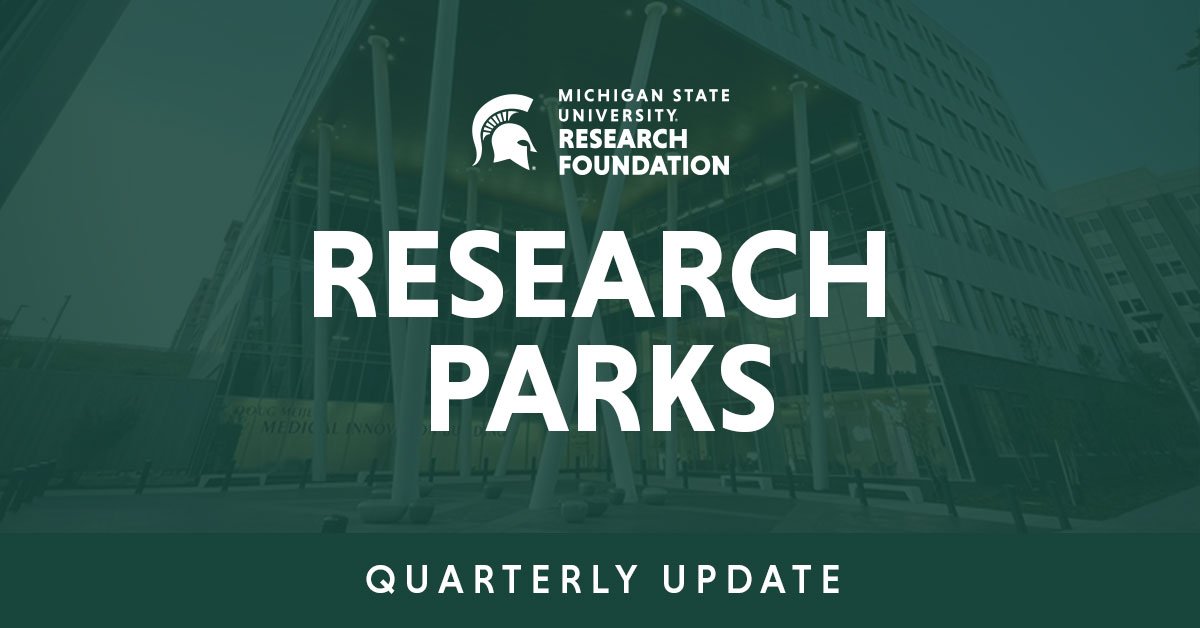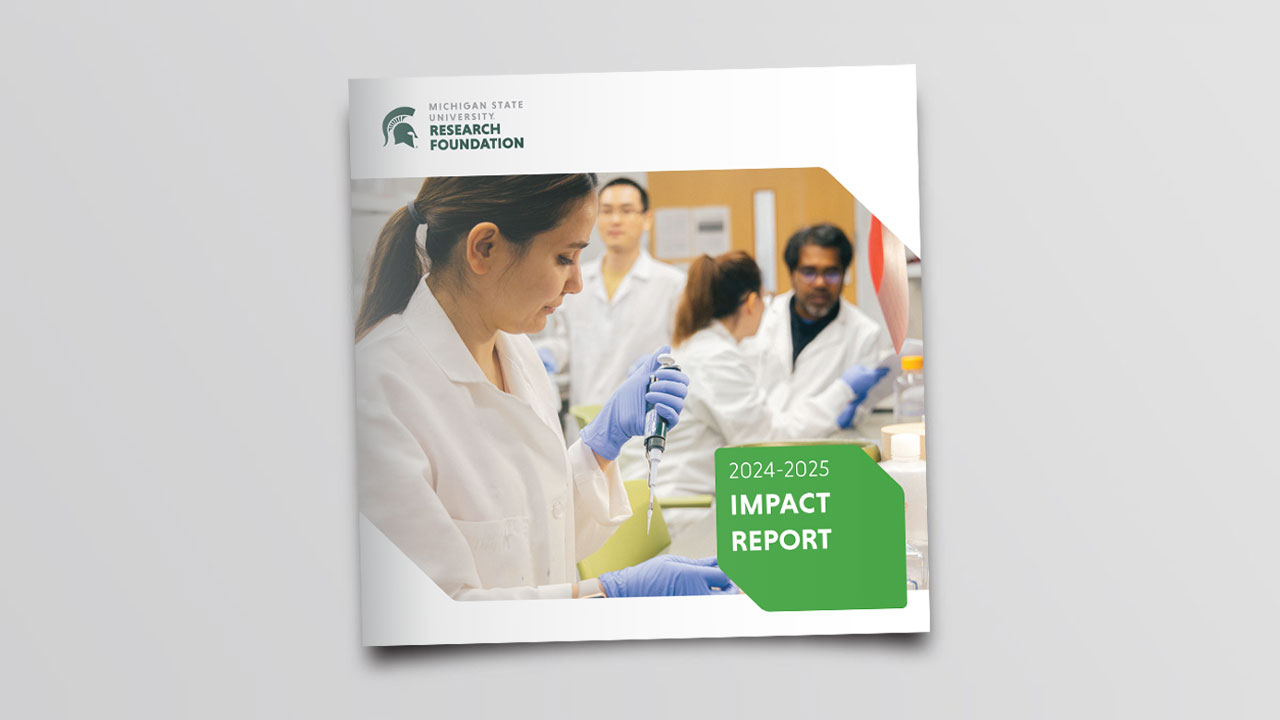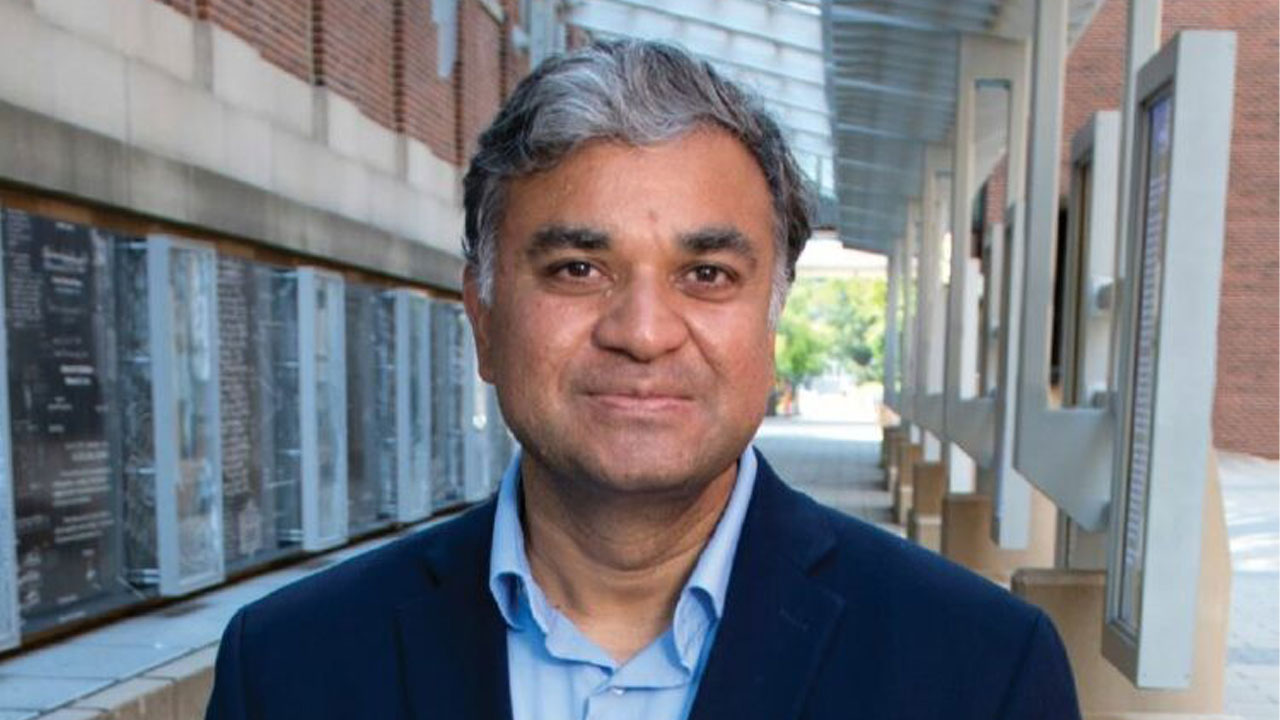SHARE
October 21, 2025
Data Science + AI Summit Explores How Agentic AI Is Reshaping Talent, Research, and Innovation
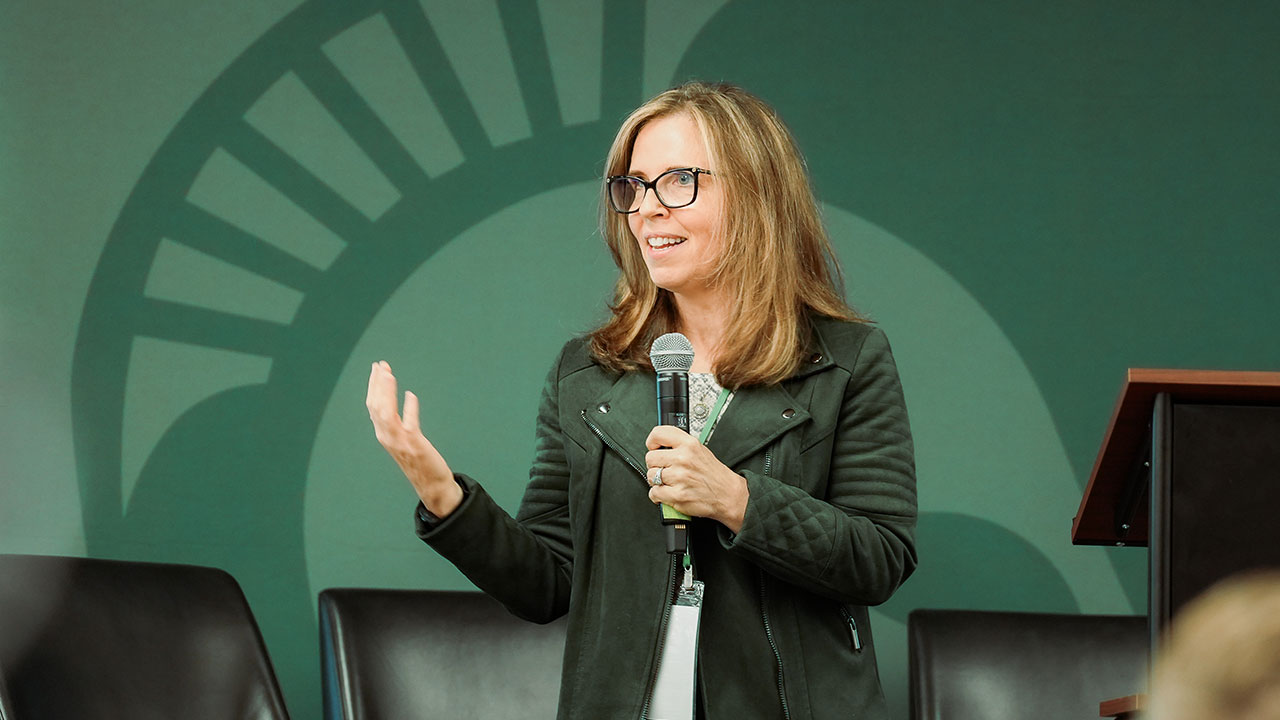
Hosted by the MSU Research Foundation and sponsored by Google Cloud and Delta Dental of Michigan, the summit brought together researchers, entrepreneurs, and industry leaders to explore how agentic AI is transforming the workforce and accelerating innovation.
EAST LANSING, Mich. (Oct. 21, 2025) — More than 200 participants gathered at the AC Hotel Lansing University Area for the 2025 Data Science + AI Summit, hosted by the MSU Research Foundation and sponsored by Google Cloud and Delta Dental of Michigan. This year’s event examined how next-generation agentic AI can augment human potential, reshape workforce development, and drive cross-sector collaboration across academia, industry, and government.
Anum Mughal, Placemaking Manager at the MSU Research Foundation, served as emcee, guiding the day’s sessions and conversations.
“Our goal is to create a space where technologists, educators, and entrepreneurs can explore how AI enhances—not replaces—human capability,” Mughal said.
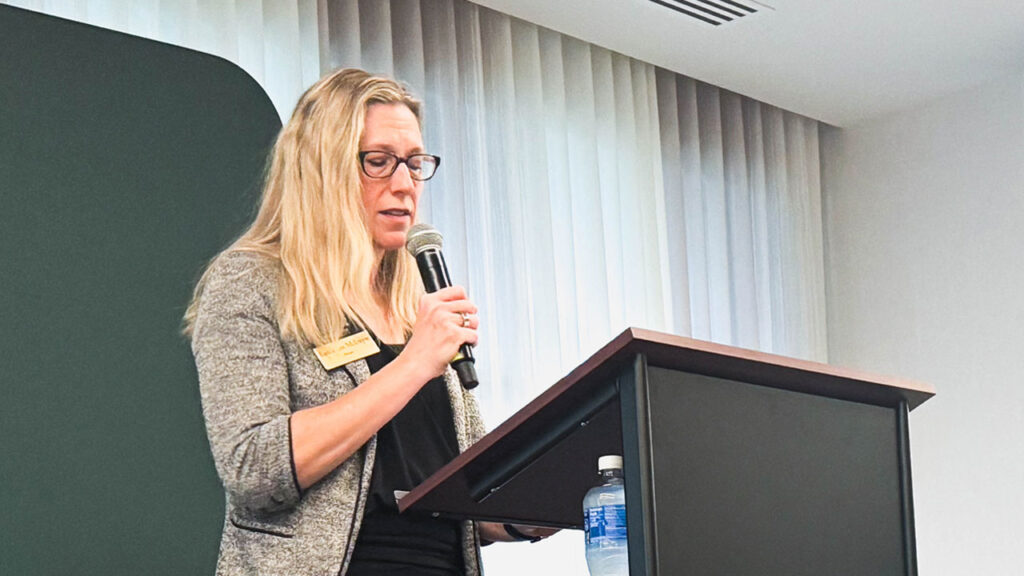
Keynotes: From AI Trends to the Future of Research
David Washburn, Chief Executive Officer of the MSU Research Foundation, opened the event, noting that AI’s rapid evolution is redefining how universities and industries work together.
“AI is evolving from a tool into a true collaborator,” Washburn said. “Our opportunity lies in guiding it toward creativity and impact.”
He then welcomed Laura Lee McIntyre, Provost and Executive Vice President for Academic Affairs at Michigan State University, whose address, “Why Agentic AI + Talent Matters,” emphasized preparing students and researchers for an era when AI operates alongside people, not apart from them.
Casey LaRose, Head of U.S. Financial Services, Security Specialization at Google, delivered the morning keynote “AI Trends 2025,” highlighting advances in AI security, governance, and ethics. He encouraged leaders to “innovate boldly but responsibly” as agentic AI systems gain autonomy.
The afternoon Vision Talk, “Charting the Next Decade of AI Research,” featured Chris Daugherty, Education Strategy Lead at Google Cloud, who urged universities and companies to partner on curricula and research that integrate technical expertise with social responsibility. Kyan Zeller, Senior Director of Corporate Relations at Michigan State University, introduced the session.
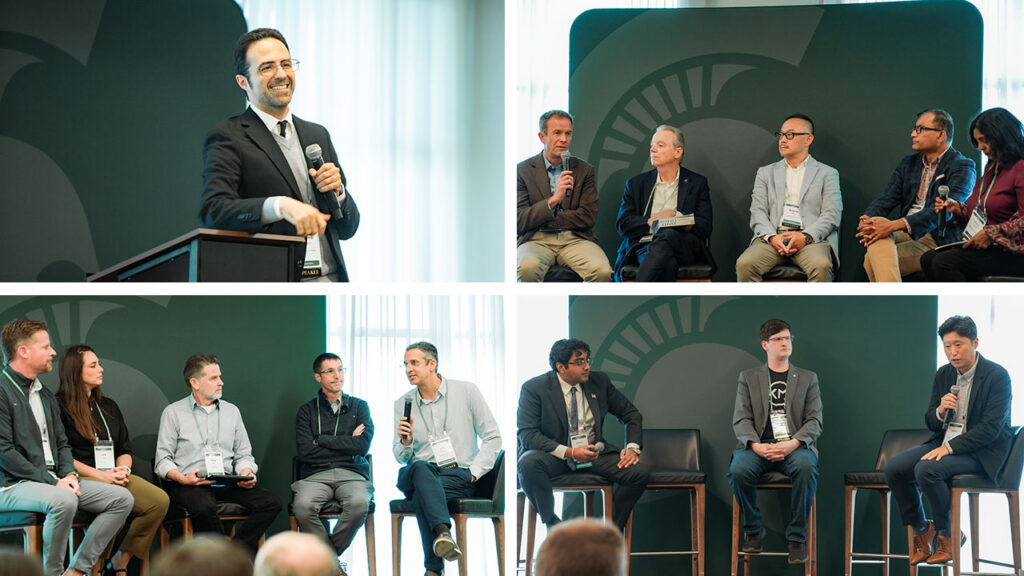
Panels: Building the Workforce and Accelerating Research
The morning panel, “Building the Workforce for an Agentic AI Era,” was introduced by Jeff Wesley, Executive Director of Ventures at the MSU Research Foundation, and moderated by Doug Neal, Co-founder and Managing Director of eLab Ventures. Panelists Adrian Fortino (Mercury Fund), Katie Hall (Claira), Cyrus Mistry (Mudita Studios), and Jay Wolcott (knowbl) discussed AI-powered experiential learning, reskilling pathways, and the new talent pipelines emerging in AI-driven industries.
“The future workforce is about empowering humans to do higher-value work with the support of intelligent systems,” said Hall.
Later in the day, the panel “Accelerating Basic Research into Applied Innovation” brought together leaders from Michigan’s major research universities to explore new models for cross-sector collaboration. The discussion was moderated by Anjana Susarla, Omura-Saxena Professor of Responsible AI at MSU’s Broad College of Business. Panelists included Adam Alessio (MSU Biomedical Engineering), Johannes Bauer (MSU ComArtSci), Dongxiao Zhu (Wayne State University), and Karthik Duraisamy (University of Michigan). They called for “modern-day Bell Labs,” partnerships that connect basic research to commercial impact.
Fireside Chat: Practical Strategies for AI-Driven Product Development
Introduced by Ilan Rubinfeld, Chief Medical Informatics Officer at Henry Ford Health, this session featured Dhruv C. Patel, Co-founder of Syncurrent (moderator), Adam Kall, Co-founder and CSO of Kall Morris Inc. (KMI), and Euihark Lee, Assistant Professor at the MSU School of Packaging. The discussion focused on real-world strategies for turning AI prototypes into market-ready products and how academia and industry can co-develop solutions that scale.
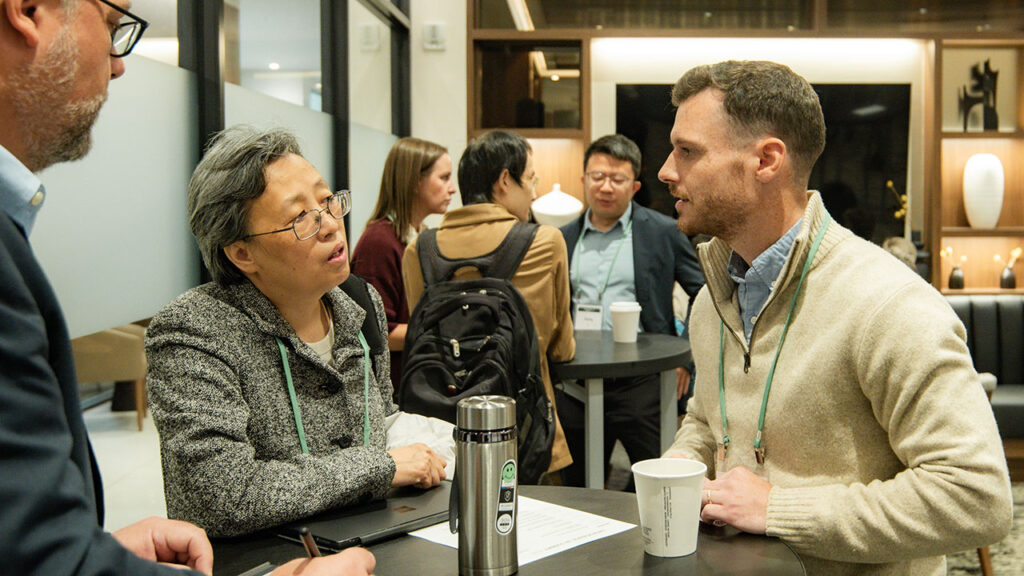
Interactive Sessions and Networking
Facilitator Tomasz Cwik, Mentor-in-Residence at the MSU Research Foundation, led morning and afternoon small-group sessions that prompted participants to wrestle with questions like “Why are you afraid (or not afraid) of AI taking your job?” and “How might agentic AI change the way you work?” These guided conversations encouraged attendees to connect across disciplines and roles.
The Innovation Speed Connect session offered rapid-fire advisory rounds between early-stage faculty, startups, and investors from Michigan Rise, Invest Detroit Ventures, Renaissance Ventures, eLab Ventures, and Henry Ford Innovations. Researchers promoted technologies ranging from EEG-based diagnostics to autonomous agricultural robots and AI-driven security automation.
Those not participating in Speed Connect joined the Agentic Connections track in the main room, facilitated by Mohammad Ghassemi, Assistant Professor in the MSU College of Engineering, helping participants forge new collaborations.
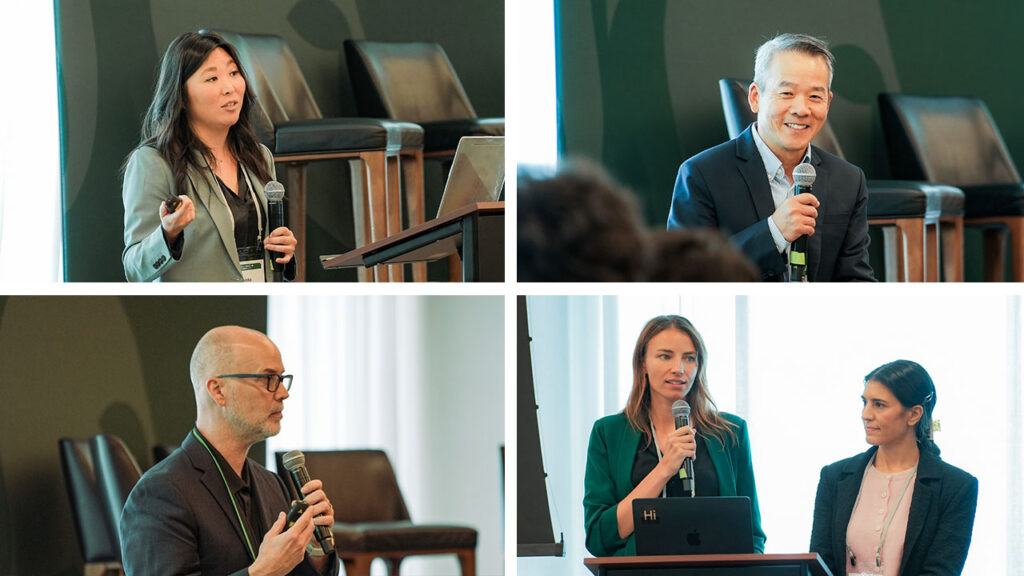
Use Cases: Agentic AI in Practice—What Went Right, What Went Wrong
Introduced by Jeff Smith, Director of Research Parks at the MSU Research Foundation, this session showcased how AI is being implemented across industries.
- Michael Chen, Chief AI Officer at Delta Dental of Michigan, shared how agentic AI is automating claims review while maintaining human oversight in a highly regulated environment.
- Isabel Sheinman and Tanyella Leta, Co-Founders of Maka Media, demonstrated how their AI platform curates healthy, developmentally aligned children’s media using a framework co-developed with the Yale Child Study Center.
- Trista Van Tine, Founder of Nunchi, presented how graph-based agentic systems can enhance relationship intelligence for membership networks and associations.
Together, these case studies illustrated how AI is moving from theoretical promise to tangible impact—and the challenges organizations face in balancing automation with accountability.
From Insight to Action
The summit closed with reflections on what the rise of agentic AI means for individuals, institutions, and the state’s innovation ecosystem. David Washburn summarized the day’s themes: “Agentic AI is not just a technical shift—it’s a cultural one. Our work is to help Michigan’s research and entrepreneurial communities navigate that shift together.”
Three Key Takeaways from the Data Science + AI Summit
- Agentic AI Is a Collaborative Partner
The next generation of AI works alongside humans—enhancing creativity, productivity, and problem-solving rather than replacing people. - Talent Development Is the Bridge
Educational institutions and employers must adapt to prepare graduates for roles defined by human-AI collaboration. - Collaboration Accelerates Impact
The most successful AI innovations will emerge from partnerships between universities, startups, corporations, and public institutions.
“This summit is part of a year-round series of forums the MSU Research Foundation organizes to showcase research and connect leaders across sectors,” said Mughal. “By bringing these voices together around AI and data science, we’re helping build the collaborations that turn ideas into impact.”
To learn more about upcoming summits and events, visit msufoundation.org/events.
Latest Posts
January 15, 2026
January 13, 2026
